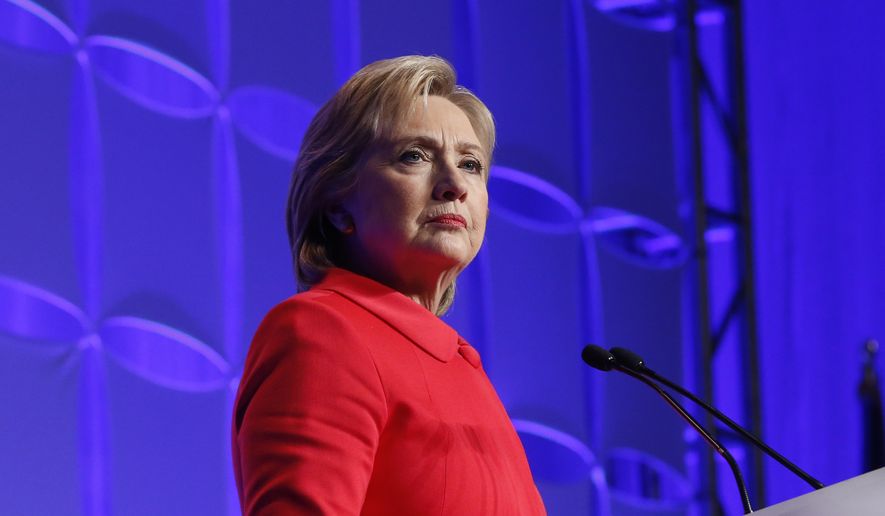More than 15 percent of the latest batch of former Secretary of State Hillary Clinton’s emails released Saturday contain classified information, with three of the messages being labeled “secret” — continuing to add to the questions surrounding her email use.
One of the messages is an extensive missive from David Satterfield, a top U.S. diplomat to Egypt, who told top officials in the White House and the State Department about negotiations in the Sinai. The entire contents of the messages are now deemed “secret,” though there is no indication they were marked as such at the time. The message was forwarded to Mrs. Clinton by top aide Jacob Sullivan.
The other two secret messages were versions of messages that had been released in earlier batches.
In addition to the three “secret” messages, more than 80 others were marked “confidential” — the lower level of secrecy — and also heavily redacted.
The department released a total of 551 messages Saturday in response to a federal judge’s order.
All told, more than 27,000 of Mrs. Clinton’s more than 30,000 messages have now been released, and some 1,675 have been deemed classified in some form. That includes 22 that are “top secret” and haven’t been released in any part whatsoever because officials say they are too sensitive to even reveal the names and subject lines.
PHOTOS: See Obama's biggest White House fails
“With the number of emails found to contain classified information climbing to nearly 1,700, Hillary Clinton’s decision to exclusively conduct official business on an unsecure email server in her basement looks even more reckless,” said Republican National Committee Chairman Reince Priebus. “This court-ordered release is another reminder that Hillary Clinton’s attempt to skirt transparency laws puts our national security at risk and that she failed to meet her legal obligations to protect classified information as secretary of state.”
The department had hoped to delay the release of the messages until the end of this month, which would have meant voters in more than a dozen states would have cast ballots in the Democratic presidential primary with little chance to digest the emails.
Judge Rudolph Contreras instead ordered the department to release the messages in installments, with Saturday’s being the first of a series that will last until Feb. 29.
All of the emails were supposed to have been released by Jan. 29, or before the first votes were cast. But just ahead of that deadline, and with a snowstorm hitting Washington, the State Department told Judge Contreras it recently had discovered more than 4,000 emails it never had sent out to other agencies to check for classified or other private material.
In a filing late Friday, a top State Department open records official took blame for his department breaking the end-of-January deadline.
Eric F. Stein, senior adviser to the deputy assistant secretary for global information services, said his department got too good at meeting monthly deadlines that it pushed the toughest documents back, and only belatedly discovered it had forgotten to run all the traps on them.
PHOTOS: Lethal Weapons: U.S. Navy's best combat arsenal
• Stephen Dinan can be reached at sdinan@washingtontimes.com.




Please read our comment policy before commenting.